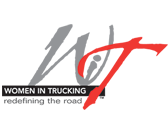By now, almost everyone has heard of Uber. It started as a simple app to request premium black cars in a few metropolitan areas. Now, Uber is changing the logistical fabric of cities around the world. Uber quickly grew into a multinational, multi-billion dollar company as it revolutionized everything from taxi rides to courier service to sandwich delivery.
Now, Uber has its sights set on the trucking industry – all part of its master plan to become the world’s largest logistics company. Uber has already started pitching services to shippers, truck fleets and independent drivers, planning to compete with the brokers who connect carriers and shippers.
Their sales pitch? When you place a call for an Uber driver, your wait time is as little as three minutes. Yet, the gold standard in freight shipping is that it takes a broker five hours of phone calls to find your truck. If Uber is so much more “efficient”, why would anyone consider calling a transportation broker?
I’ve heard this song before. Back in the 90’s, when load boards started popping up everywhere, many people predicted the end of transportation brokers. It seemed logical that if shippers could contact available trucks directly, they would no longer need a broker.
And yet, we’re still here. And, I predict we’ll continue to be here for quite some time. Why? Because brokers do a lot more than just find trucks. We:
• Vet carriers – a process that continues to evolve as regulations change and thieves find new ways to steal identities.
• Monitor shipments: brokers pass critical information about shipment requirements to drivers and babysit shipments to ensure compliance.
• Resolve problems. Let’s face it- there are a lot of things that can go wrong in trucking. Brokers who communicate with drivers, shippers, consignees and other parties prevent minor issues from becoming major issues.
• Build relationships. Most shippers want to know the person and the company that is ultimately taking responsibility for getting their freight from point A to point B safely and on time.
• Guarantee pricing. Uber operates on surge pricing, meaning that fare rates automatically increase when the demand is higher than available drivers. There are far fewer trucks than cars, so when capacity gets tight in certain geographic areas, trucking transportation prices would skyrocket. With brokers, shippers can count on better price stability. Once brokers bid a lane, tight capacity and price pressure becomes their problem.
Yes, there are technologies that can match shippers directly with carrier capacity, vet carriers, or even monitor shipments – we use some of those tools right here at Matchmaker. But we humans still cannot be beat when it comes to critical problem-solving or relationship building.
Could Uber do to brokers what the printing press did to scribes 500 years ago? Maybe.
I can envision a day when shippers digitally order a self-driving truck that heads to the shipping location where a robot loads the truck. The benefits could be just as great – the printing press created a colossal drop in the price of books, spreading literacy and knowledge all over the globe. But calligraphy is still highly valued when beautiful writing truly matters. Our industry could be revolutionized, but it will never replace the value a good broker brings to the work.
That said, I am wrong all the time. (Just ask my wife!) What do you think? Do you agree or do you see it differently? I’m always interested in other perspectives, and I’d love to get yours.
Write a handwritten note this weekend,
~Bob








